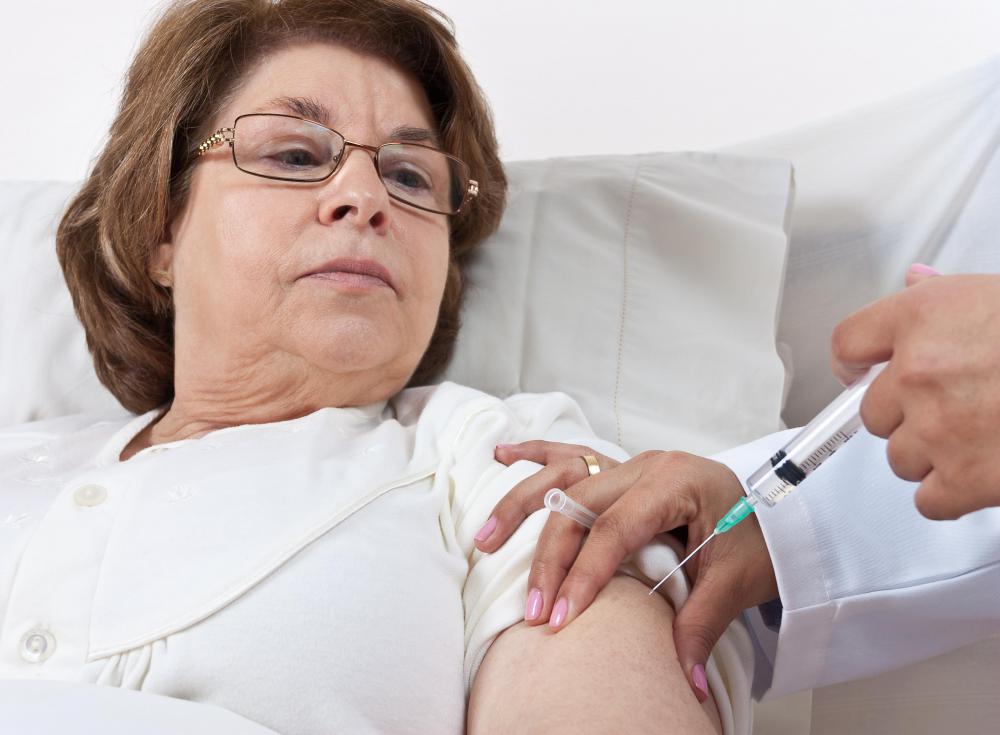At WiseGEEK, we're committed to delivering accurate, trustworthy information. Our expert-authored content is rigorously fact-checked and sourced from credible authorities. Discover how we uphold the highest standards in providing you with reliable knowledge.
What Is Tensilon Testing?
Tensilon testing is a medical procedure performed to diagnose a neuromuscular disorder called myasthenia gravis. During Tensilon testing, the patient receives an injection of Tensilon, a drug also known as edrophonium, in the muscle or vein. Other times, a placebo takes the place of the drug. In some cases, the patient might receive another drug, atropine, before the Tensilon injection. The purpose of Tensilon testing is not only to diagnose myasthenia gravis, but also to ensure the diagnosis by differentiating between the disorder and other similar conditions.
The effect the drug has on the patient will help with the diagnosis. Tensilon will affect a patient with myathsthenia gravis by allowing him a few minutes of muscle improvement. After the Tensilon injection, the doctor will ask the patient to perform a task involving muscular movement, such as getting up from a seated position. To differentiate between myathsthenia gravis and other conditions, during Tensilon testing, the patient might gradually receive more of the drug. In abnormal results, such as cholingergic crisis or myasthenic crisis, the drug has different effects. In cholingergic crisis, the patient becomes weaker with Tensilon while in myasthenic crisis, the patient receives muscle strength improvement, but only briefly.

Myasthenia gravis is a disorder in which the affected person suffers from weak voluntary muscles. Voluntary muscles are those that a person normally controls, such as muscles in the arms or legs. The muscle weakness associated with this disorder occurs because of nerves. The nerve that stimulates the particular muscle essentially does a poor job of it, thereby causing the muscle weakness. The poor interaction between the muscle and the associated nerve is caused by an autoimmune response in which the body’s immune cells attack healthy cells; this autoimmune response causes the body to produce antibodies that essentially block the interaction between the muscle and the nerve.

With myasthenia gravis, the more a person uses the affected muscles, the worse the condition becomes. Although the muscle weakness can improve with rest, the weakness can cause the affected person to suffer from various symptoms, depending on the affected muscle. For example, he might experience difficulty with breathing, chewing or swallowing due to weakness in the chest wall muscles. He might also have difficulty with mobility due to weak leg muscles, such as trouble climbing stairs or getting up from a chair. In addition, he might experience weakness in the eye muscles or facial muscles.
AS FEATURED ON:
AS FEATURED ON:












Discuss this Article
Post your comments